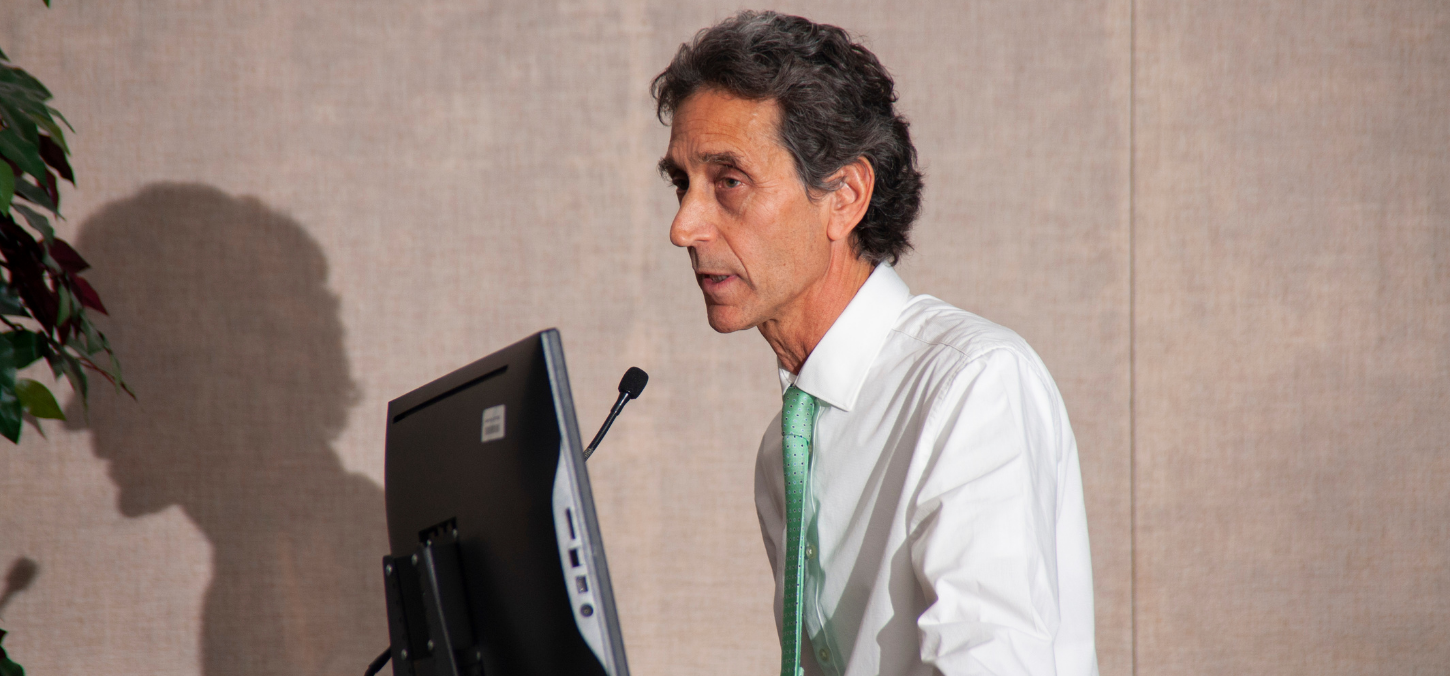
Mental Health and Dentistry: Preparing For The One in Five
By Rachel Boutet
As fourth-year DDS students enter their final year on campus, they will be heading to the Centre for Addiction and Mental Health (CAMH) to complete a clinical rotation. While third-year DDS students are given the option to do a one-week clinical rotation at CAMH, every fourth-year student is required to attend for one day.
“One in five people suffer from mental illness,” says Joel Rosenbloom, assistant professor, teaching stream, at the Faculty who spends two days a week as a staff dentist at CAMH. “That means one in five dental students, one in five patients, and one in five family members or friends. We have to equip our students to deal with this because if we ignore it, we do so at the expense of them and our patients.”
The CAMH clinical rotations have been running for 10 years and have garnered so much positive feedback from students that Rosenbloom knew there was more to be done at the Faculty in regard to mental health education. One of the ways Rosenbloom did this was with the creation of a new third-year course he directs and is a lecturer for, “Psychiatry and Dentistry”. The course began in spring 2020 and helps to enrich the student experience during their CAMH rotations.
Due to the COVID-19 pandemic, June 2021 was the first time all six lectures ran. The topics include a primer on the most common mental illnesses; mental health services of the past, present and future; a CAMH community lecture on stigma training and how to implement anti-stigma behaviours; a lecture on oral health and the effects of addictions and mental health on teeth; a lecture on trauma psychiatry and how to engage with a traumatized patient; and case presentations from Rosenbloom including his key learnings and the takeaways students can use in their own practices.
“The response to the course has been really great and supportive,” says Rosenbloom. “Students left knowing what they learned would make them better dentists and better able to sensitively treat clients with mental illness.”
The more we as professors and dentists set the tone that it’s ok to confide in others about what you’re going through, the more we create an environment where we can welcome open and honest communication to support each other institutionally and as human beings.
Rosenbloom also helps run “lunch and learn” sessions at the Faculty that brings in students who have completed their CAMH rotations, outside speakers, including David Goldbloom, professor and senior medical advisor at CAMH, as well as those who have been affected by mental health.
Rosenbloom notes that this topic is close to his heart, opening up about struggling with anxiety for much of his life and how important it has been for him to find coping mechanisms. He was featured by both CAMH and CDA essentials about his experiences, reflecting on how much has changed since his own time in dental school.
Rosenbloom hopes that other dental schools across the country will look to a course like the one of at U of T and consider it for their own program. In addition to education on mental illness, he notes the importance of supports such as the Faculty’s Wellness Committee.
“The defining illness of this generation is no longer heart disease and cancer – it’s mental illness,” says Rosenbloom. “It’s only going to get more and more prominent. The more we as professors and dentists set the tone that it’s ok to confide in others about what you’re going through, the more we create an environment where we can welcome open and honest communication to support each other institutionally and as human beings.”
Photo: Joel Rosenbloom – taken pre-COVID (Jeff Comber)